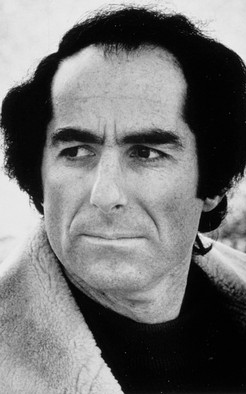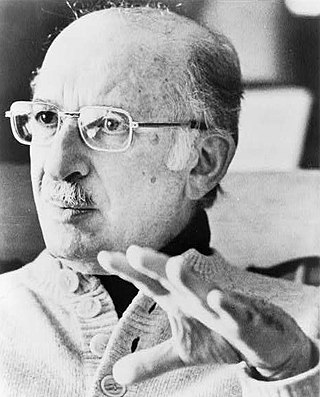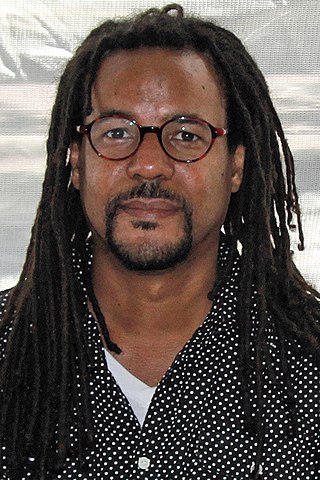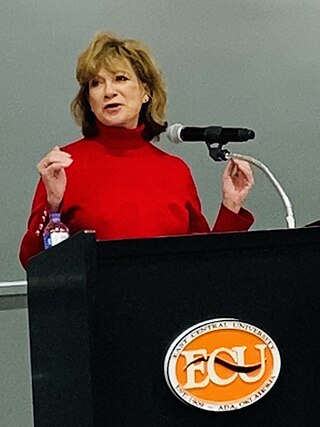
Philip Milton Roth was an American novelist and short-story writer. Roth's fiction—often set in his birthplace of Newark, New Jersey—is known for its intensely autobiographical character, for philosophically and formally blurring the distinction between reality and fiction, for its "sensual, ingenious style" and for its provocative explorations of American identity. He first gained attention with the 1959 short story collection Goodbye, Columbus, which won the U.S. National Book Award for Fiction. Ten years later, he published the bestseller Portnoy's Complaint. Nathan Zuckerman, Roth's literary alter ego, narrates several of his books. A fictionalized Philip Roth narrates some of his others, such as the alternate history The Plot Against America.

Richard Ford is an American novelist and short story author, and writer of a series of novels featuring the character Frank Bascombe.

Bernard Malamud was an American novelist and short story writer. Along with Saul Bellow, Joseph Heller, Isaac Bashevis Singer, Norman Mailer and Philip Roth, he was one of the best known American Jewish authors of the 20th century. His baseball novel, The Natural, was adapted into a 1984 film starring Robert Redford. His 1966 novel The Fixer, about antisemitism in the Russian Empire, won both the National Book Award and the Pulitzer Prize.
The PEN/Faulkner Award for Fiction is awarded annually by the PEN/Faulkner Foundation to the authors of the year's best works of fiction by living Americans, Green Card holders or permanent residents. The winner receives US$15,000 and each of four runners-up receives US$5000. Judges read citations for each of the finalists' works at the presentation ceremony in Washington, D.C.. The organization claims it to be "the largest peer-juried award in the country." The award was first given in 1981.

Mona Simpson is an American novelist. She has written six novels and studied English at University of California, Berkeley, and languages and literature at Columbia University. She won a Whiting Award for her first novel, Anywhere but Here (1986). It was a popular success and adapted as a film by the same name, released in 1999. She wrote a sequel, The Lost Father (1992). Critical recognition has included the Chicago Tribune Heartland Prize and making the shortlist for the PEN/Faulkner Award for her novel Off Keck Road (2000).

Arch Colson Chipp Whitehead is an American novelist. He is the author of nine novels, including his 1999 debut The Intuitionist; The Underground Railroad (2016), for which he won the 2016 National Book Award for Fiction and the 2017 Pulitzer Prize for Fiction; and The Nickel Boys, for which he won the Pulitzer Prize for Fiction again in 2020, making him one of only four writers ever to win the prize twice. He has also published two books of nonfiction. In 2002, he received a MacArthur Fellowship.

Edward Paul Jones is an American novelist and short story writer. He became popular for writing about the African-American experience in the United States, and received the Pulitzer Prize for Fiction and the International Dublin Literary Award for The Known World (2003).

Tobias Jonathan Ansell Wolff is an American short story writer, memoirist, novelist, and teacher of creative writing. He is known for his memoirs, particularly This Boy's Life (1989) and In Pharaoh's Army (1994). He has written four short story collections and two novels including The Barracks Thief (1984), which won the PEN/Faulkner Award for Fiction. Wolff received a National Medal of Arts from President Barack Obama in September 2015.

Sergio Troncoso is an American author of short stories, essays and novels. He often writes about the United States-Mexico border, working-class immigrants, families and fatherhood, philosophy in literature, and crossing cultural, psychological, and philosophical borders.

George Saunders is an American writer of short stories, essays, novellas, children's books, and novels. His writing has appeared in The New Yorker, Harper's, McSweeney's, and GQ. He also contributed a weekly column, "American Psyche", to The Guardian's weekend magazine between 2006 and 2008.

Rabih Alameddine is an American painter and writer. His 2021 novel The Wrong End of the Telescope won the 2022 PEN/Faulkner Award for Fiction.

Ann Patchett is an American author. She received the 2002 PEN/Faulkner Award and the Orange Prize for Fiction in the same year, for her novel Bel Canto. Patchett's other novels include The Patron Saint of Liars (1992), Taft (1994), The Magician's Assistant (1997), Run (2007), State of Wonder (2011), Commonwealth (2016), The Dutch House (2019), and Tom Lake (2023). The Dutch House was a finalist for the 2020 Pulitzer Prize for Fiction.
Ron Hansen is an American novelist, essayist, and professor. He is known for writing literary westerns exploring the people and history of the American heartland, notably The Assassination of Jesse James by the Coward Robert Ford (1983), which was adapted into an acclaimed film.

Victor LaValle is an American author. He is the author of a short-story collection, Slapboxing with Jesus, and five novels, The Ecstatic,Big Machine,The Devil in Silver,The Changeling, and Lone Women. His fantasy-horror novella The Ballad of Black Tom won the 2016 Shirley Jackson Award for best novella. LaValle writes fiction primarily, though he has also written essays and book reviews for GQ, Essence Magazine, The Fader, and The Washington Post, among other publications.

Rilla Askew is an American novelist and short story writer who was born in Poteau, in the Sans Bois Mountains of southeastern Oklahoma, and grew up in the town of Bartlesville, Oklahoma.

David Ebershoff is an American writer, editor, and teacher. His debut novel, The Danish Girl, was adapted into an Academy Award-winning film of the same name in 2015, while his third novel, The 19th Wife, was adapted into a television movie of the same name in 2010.

Ugly Rumours was the first novel by American writer Tobias Wolff. It was published only in Britain, in 1975, and has never been reprinted. The book does not appear in Wolff's list of publications included in recent books—the London Review of Books commented on this omission, stating that "to read (Ugly Rumours) is to understand why "—and when his novel Old School was published in 2004, all publicity copy referred to it as his first novel.

Yiyun Li is a Chinese-born writer and professor in the United States. Her short stories and novels have won several awards, including the PEN/Hemingway Award and Guardian First Book Award for A Thousand Years of Good Prayers, the 2020 PEN/Jean Stein Book Award for Where Reasons End, and the 2023 PEN/Faulkner Award for Fiction for The Book of Goose. Her short story collection Wednesday's Child was a finalist for the Pulitzer Prize. She is an editor of the Brooklyn-based literary magazine A Public Space.

Wilton Brad Watson was an American author and teacher of creative writing. Originally from Mississippi, he worked and lived in Alabama, Florida, California, Boston, and Wyoming. He was a professor at the University of Wyoming from 2005 until his death in 2020. In his lifetime Watson published four books – two novels and two collections of short stories – to critical acclaim. His fifth (posthumous) book is There Is Happiness: New and Selected Stories.

Mitchell S. Jackson is an American writer. He is the author of the 2013 novel The Residue Years, as well as Oversoul (2012), an ebook collection of essays and short stories. Jackson is a Whiting Award recipient and a former winner of the Ernest J. Gaines Award for Literary Excellence. In 2021, while an assistant professor of creative writing at the University of Chicago, he won the Pulitzer Prize and the National Magazine Award for Feature Writing for his profile of Ahmaud Arbery for Runner's World. As of 2021, Jackson is the John O. Whiteman Dean's Distinguished Professor in the Department of English at Arizona State University.


















